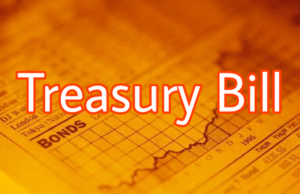IC Research Forecasts Revenue Growth to Decelerate to GH¢209.3bn in 2025; No Restructuring of T-Bills
IC Research has projected that Ghana’s total revenue for 2025 will reach GH¢209.3 billion, which is expected to be about 17.2% of the country’s Gross Domestic Product (GDP). This marks a notable slowdown in revenue growth, as the figure represents a 16.1% year-on-year increase compared to a much higher 33.8% growth rate forecasted for 2024. The revised growth in revenue indicates a more cautious approach moving into the following year, with expectations that the pace of economic recovery may moderate.
On the expenditure side, IC Research has projected that total government expenditure (on a commitment basis) will rise to GH¢240.9 billion in 2025, amounting to approximately 19.8% of GDP. This forecast represents a sharp slowdown in the growth of government spending, which is expected to increase by just 10.4% compared to the 32.2% year-on-year growth that was estimated for 2024. This deceleration in expenditure growth reflects the government’s efforts to rein in spending and restore fiscal balance, particularly in light of ongoing fiscal consolidation measures.
The research also points out that while the International Monetary Fund (IMF) assumes the expenditure forecast includes full debt restructuring, the Fund has placed significant emphasis on the need to enhance expenditure controls and implement a stronger fiscal responsibility framework. This is to ensure that the government’s fiscal policies align with sustainable debt management and effective allocation of resources. In this regard, IC Research views the projected reduction in the expenditure-to-GDP ratio from 20.7% in 2024 to 19.8% in 2025 as a positive step toward fiscal consolidation, particularly when combined with a broadly stable revenue-to-GDP ratio of 17.2%. The country is expected to focus on tightening expenditure controls in the post-election year, helping to stabilize the economy while maintaining spending discipline.
T-Bills Remain Safe, No Restructuring Expected
In another key update, IC Securities has provided reassurance to investors regarding treasury bills (T-bills), indicating that these short-term government securities will not undergo restructuring. Despite concerns about the country’s debt situation, IC Securities has confirmed that T-bills will remain unaffected by the restructuring of Ghana’s external and domestic debt. This stance follows the government’s explicit position that T-bills are not part of the comprehensive debt restructuring program, which is nearing completion.
This confirmation is significant for investors in the domestic treasury market, who have been closely watching the government’s debt restructuring efforts following Ghana’s default on its loans in 2022. There had been growing speculation that the government might consider restructuring short-term instruments such as T-bills, especially given the heavy reliance on domestic borrowing to finance the country’s fiscal deficit. However, both the government and IC Securities have assured that T-bills, due to their importance in maintaining financial stability, will not be included in the restructuring process.
IC Securities further emphasized that T-bills continue to be a safe investment for short-term liquidity management. The firm expressed confidence that, given the government’s commitment to maintaining financial stability and the vital role of T-bills in the country’s financial system, these instruments will remain secure for investors. The T-bills market is seen as crucial for managing liquidity within the banking system, and any restructuring of these instruments could undermine the confidence of domestic investors.
The government’s decision to exclude T-bills from its debt restructuring program has been welcomed by many in the financial markets, as it helps to maintain stability in the short-term debt market. This move should also provide reassurance to investors who rely on T-bills as a safe, low-risk asset in their portfolios, particularly in times of economic uncertainty.
Ghana’s economic outlook for 2025 reflects a slowing growth trajectory in both revenue and expenditure. The government is expected to moderate its spending growth as part of a broader effort to implement fiscal consolidation and maintain fiscal discipline. At the same time, T-bills remain secure for investors, with the government affirming that these short-term instruments will not be part of the debt restructuring program. This stability is crucial for maintaining investor confidence in the country’s financial markets as Ghana continues its efforts to stabilize its economy and manage its debt.








